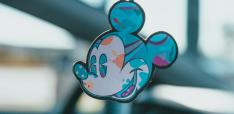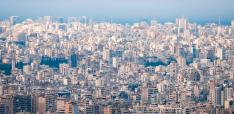Caliphate: Now In Mint Flavour!
Is minting a currency truly an early symptom of statehood or state-building?
To ISIS, state-building means something different from its use in development circles. It means the grand evolution, from roving tribes with weapons into a caliphate, an extraordinarily complex imperial structure. In which order to implement the features of government is something that interests me, as someone who has studied anarchocapitalists who tend to advocate the opposite.
Anarchocapitalists often advocate the unwinding of government down to the point where the government only does four things: 1) arbitrates disputes in fair and consistent courts, 2) mints currency (and has a small garrison of mercenaries to guard the mint), 3) sets interest rates, and 4) crushes monopolies and those causing market distortions (with violence when necessary). More than a few of my classmates at the University of Chicago subscribed to this view when we were masters students. Everything else – from roads to garbage collection to policing to the military – could be privatised and run by corporations or cartels, they argued.
So I, naturally, wondered whether ISIS would build a state in the opposite order from the order in which the Chicago School anarchocapitalists would dismantle it. Would these central institutions that were immune to the Posnerian bulldozer be the first to emerge in the new caliphate? The answer is a resounding maybe.
This week, ISIS announced it plans to begin minting a currency and that it will establish a central bank for its caliphate. Interestingly, it did not declare a reserve currency and I assume this new central bank would operate with personal letters of credit being the primary borrowing mechanism (ISIS has made no mention of issuing bonds). Like the (largely unrecognized) 1,000 shilling coins of Somaliland (which are minted from suprasterling silver, meaning more than 92.5% pure), the new ISIS currency will be made from valuable metals – initially, gold and silver. Holding gold creates an opportunity for non-interest-bearing appreciation of assets, though it is unclear why anyone would hold ISIS coinage rather than simply holding gold.
However, though ISIS has chosen to behave in some state-like ways (providing security forces and currency, for instance), it has not created other institutions that many would expect from a state. Its control of utilities and natural resources has been largely kleptocratic and its reliance on a small internal plutocracy for governance no doubt limits its access to talent. Though ISIS seems to draw substantial recruits, as well as having a policy toward men in captured areas that could be loosely described as conscription, these recruits are generally of low quality as workers an add minimal value to ISIS as an enterprise. The resources and technical knowledge needed to transform ISIS’s assets into something of higher value (refined petroleum products versus crude oil, for instance) have not yet gravitated toward the organisation.
Next, it seems ISIS must build three pieces that will allow it to be taken more seriously as a state. The first is some diplomatic intermediary that allows it to strike bargains with counterparties. The second is a system by which it can promote outsiders to senior positions and let them contribute their talents to the cause (this is arguably where al-Qaeda failed, letting its senior management’s few areas of competence control its direction). Third, it must find some way to invest its current and (presumably larger?) future revenues, which will require an elaborate blend of money laundering, puppet funds, and international banking expertise. The current organisation simply cannot attract the kind of talent and expertise needed to build these three pieces, and the top minds in law and business will not work for a group of gangsters offering payment in gold coins.
In the end, ISIS’s decision to display certain features of a state does not solve its fundamental challenge, which is a human capital problem. Every outward-facing piece of evidence suggests there simply isn’t enough talent or knowledge in the organisation to take the project to the next level, which would be to build up to the very basic, minimalist state anarchocapitalists envision reducing more complex Western states to resemble.

